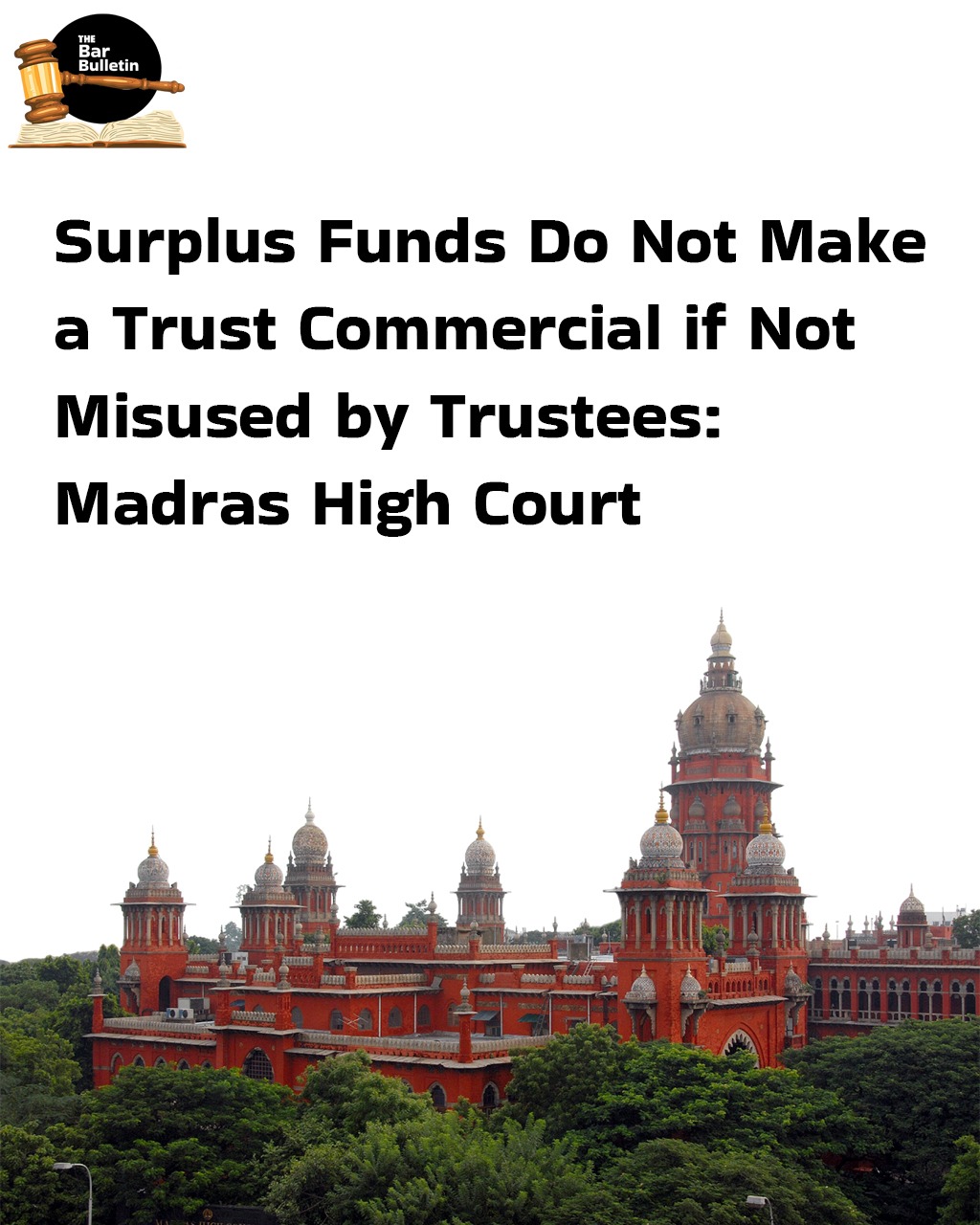The Madras High Court held that a surplus in the hands of a charitable trust cannot, by itself, justify the denial of registration under Section 12AA of the Income Tax Act, especially when the surplus is not diverted for the personal benefit of trustees and the charitable nature of the trust’s activities remains undisputed.
The judgment was delivered by a Division Bench comprising Chief Justice K.R. Shriram and Justice Sundar Mohan, which upheld the decision of the Income Tax Appellate Tribunal (ITAT) directing the Department to grant registration to the Respondent Trust.
The Respondent Trust, which runs an educational institution, had applied for registration under Section 12AA by filing Form 10A, two decades after the execution of its trust deed. The Director of Income Tax (Exemptions) denied registration, citing that the application was filed belatedly and alleging that the trust was operating on commercial lines, as evidenced by a surplus of almost 50% of the fees collected.
The Department also objected to a clause in the trust deed allowing lineal descendants of the Founder Trustee to become life trustees, arguing it undermined the trust’s public character. It further relied on Section 11 to argue that the trust must spend at least 85% of its income on charitable activities to qualify for registration.
The Court rejected the Department’s reasoning and clarified the following:
The Income Tax Act does not require a trust to spend over 50% of its income as a condition for registration under Section 12AA. The 85% expenditure requirement under Section 11 arises only after registration, when the trust seeks tax exemption—not at the stage of applying for registration.
The mere existence of a surplus does not establish that the trust is run with a profit motive, especially when there is no evidence of the funds being misused or diverted for personal gain.
The fact that the trust applied for registration twenty years after formation is not a legal bar. The Court found no provision in the Act mandating a specific timeline for applying under Section 12AA.
The clause concerning family members managing the trust does not, by itself, negate its public charitable purpose. The Court observed that such a structure can be justified where it ensures effective administration, provided the charitable intent and public benefit are preserved.
The High Court referred to Section 2(15) of the Act, which includes “education” as a charitable purpose, and noted that the trust was clearly engaged in such activities. As the Department did not dispute the genuineness of the educational operations, the Court ruled that the denial of registration was unwarranted.
By affirming the ITAT’s direction to grant registration under Section 12AA, the High Court noted that surpluses, family involvement in governance, or delayed application cannot be sole grounds for refusal, as long as the trust’s activities remain genuinely charitable and serve public interest.
Appearances:
Appellant: Advocate V. Pushpa
Respondent: Advocate R. Vijayaraghavan
![]()



